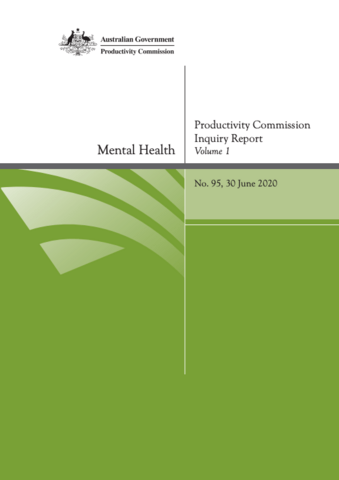Australian Productivity Commission Report highlights need for urgent action on psychological health and safety in workplaces

For a long time, we have urged organisations to treat psychological health and safety with the same seriousness as they do physical health and safety. The newly released Australian Productivity Commission Report into Mental Health is now loudly echoing this call.
The report states that ‘there are benefits to workers, employers and the wider community from improvements to workplace mental health that lower employee absenteeism, increase productivity and reduce mental health related compensation claims.’
It lists as a priority that ‘Australian, State and Territory Governments should amend Workplace Health and Safety arrangements in their jurisdiction to make psychological health and safety as important in the workplace as physical health and safety.’
Through their health and safety measures, Australian workplaces have done a brilliant job in reducing physical injury. However, while almost all of us have been taught the correct way to lift a box, very few of have been taught how to handle difficult thoughts, uncomfortable emotions or times of high stress. In a large percentage of organisations, preventative mental health training has been completely overlooked.
For far too long, workplace mental health has been considered by organisations as too hard or too awkward. Far too often it has been responded to with tokenistic awareness campaigns or wellness initiatives that had no evidence base. Thankfully, this is starting to change.
With 2020 unleashing a whole load of added stresses, most organisations now recognise that real action needs to be taken. As a provider of evidence-based resilience training, we have seen this shift first-hand. Throughout 2020 we have been overwhelmed with enquiries for Mindarma and have rushed to deliver support to places where it has been needed most.
During a year dominated by devastating bushfires and Covid-19, we are proud to have brought Mindarma to tens of thousands of workers across Australia, including many who perform some incredibly challenging jobs. From firefighters, paramedics and frontline medical workers, to those in other vital community sector roles, we have been able to equip people with some incredibly valuable skills.
If we expect workers to simply ‘tough it out’ and rely on the same terrible coping strategies that have been handed down for generations, the results will be predictably poor. Instead, we can help build psychological resilience, encourage self-care and make it easy for people to access the right support.
The great thing is, we know this approach works. Every time we scan our research results, we can clearly see that our training is making a very real difference.
We also know that we are currently reaching just the very tip of an exceptionally large iceberg.
As the Productivity Commission report outlines, the challenge we are faced with is large. But there is no reason we can’t rise to it. Taking action has a positive economic effect and it needn’t be complex.
In our recent chat with Associate Professor Samuel Harvey on the Mindarma podcast, the Black Dog Institute’s Chief Psychiatrist shared a number of valuable tips regarding how organisations can move past the common stumbling blocks and start creating mentally healthy workplaces. If you missed it, you can listen here.
To support those who are working to make a difference, Mindarma has also arranged a special Q&A session in partnership with the Black Dog Institute. The ‘What Now?’ webinar will be held on Wednesday November 25th at 12.30pm AEDT. The free online event will feature Mindarma co-founder Sadhbh Joyce, along with Black Dog Research Fellow Dr Mark Deady and Black Dog Institute External Fellow Ruth Marshall, providing expert advice on how organisations can tackle current mental health challenges. To find out more, register or ask a question, click here.